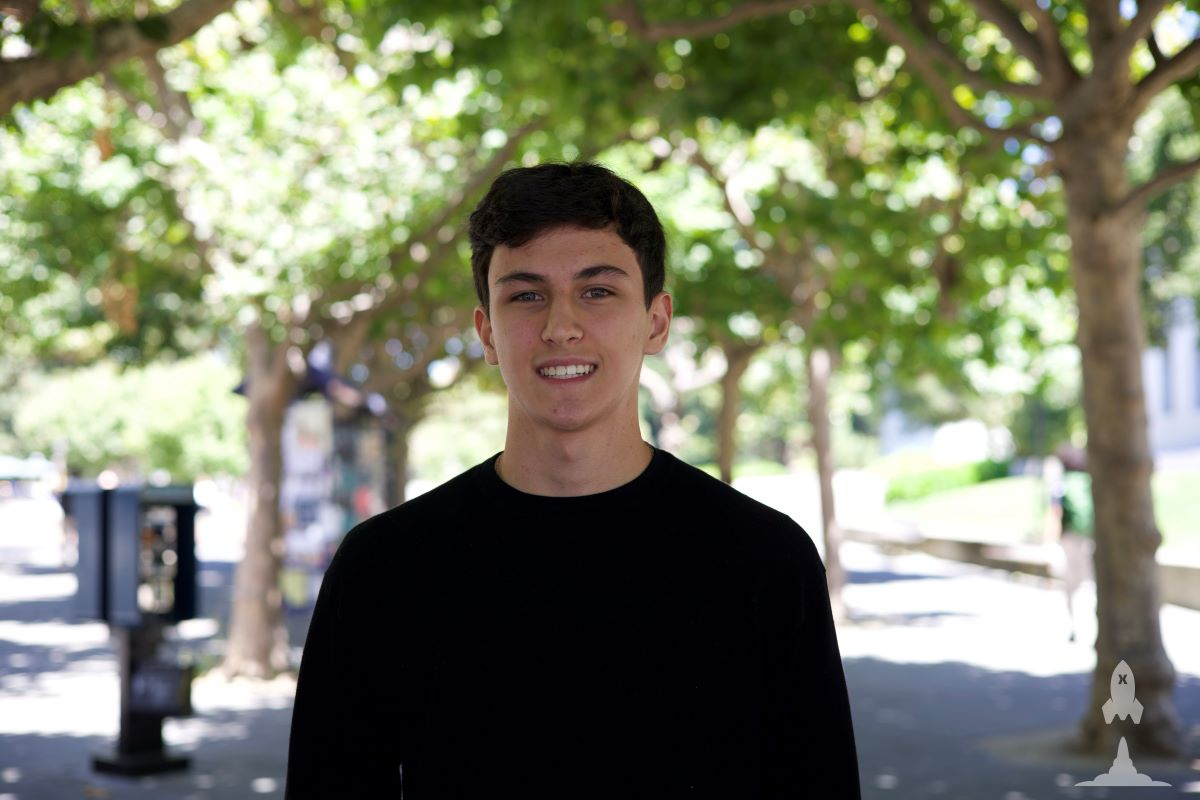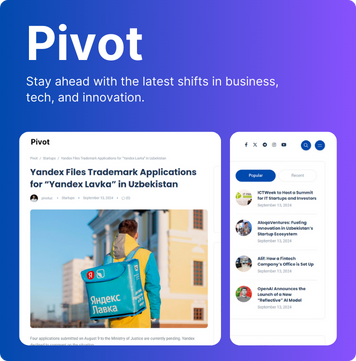
Pleep Founder and CEO Mark Inger
Mark Inger is 17 years old. The Kazakh schoolboy has been involved in startups since the 8th grade: it all started with a school project, and now the guy is the CEO of Pleep, a company that develops intelligent chatbots for small and medium-sized businesses. In an interview with Digital Business, Mark told how he managed to build a working business with 50 paying customers in a short time. We also learned how difficult it is for a schoolboy to attract venture capital in Kazakhstan and how he managed to convince investors to invest in his project.
“At the age of 15, I got a job at an American startup, where I earned $ 300 a month.”
— How did the idea to open a business come about?
— I first heard about startups when I was 14. Then I went through an incubation program with a friend at the linguistic gymnasium No. 105 named after him. We needed a website for our project. So I became interested in programming and attended free courses at American Space Almaty (a cultural and educational center supported by the US Embassy in Kazakhstan – Digital Business note). Then I learned to develop myself.
In early 2023, at the age of 15, I was looking for a job as an intern as a frontend developer. I applied for 180 vacancies. I was invited to my first technical interview by the American startup Starfund. I applied and got a job. They started paying me $300 a month. Within 1.5 years, the salary increased to $500. I was happy with the salary, considering I only worked part-time.
This incident prompted me to create Jumify, a service that connects inexperienced startups and professionals. Some need workers, while others need internships. So I opened my first startup.
– Did you manage to implement your idea?
– Unfortunately, no. We created a product for the sake of the product, hoping that customers would find us on their own. That was a mistake. Not understanding how the business works, I acted as if I thought it was right. Now I think the project had potential, but at that time it was not feasible.
— Why didn’t they develop the startup further if they saw the potential?
— It went into bleep mode. In late 2023, I presented Jumify on the pitch and heard the idea echoed in the room – “AI for AI”. This included using AI to develop and support other AI systems. This phrase caught my attention and I started looking for opportunities related to AI. I invited Robert and Asan, two of the best programmers from the Jumify team, to the project.
– What was the idea behind Pleep?
— At first, we used no-code to build complex AI applications. Of course, this was the worst way to start a startup – first create a product and then try to sell it. But we developed the MVP more for fun than for business. Then CPO Evgeniya Yeikina joined us, with her help we decided to do custom development and made the first sales.
We called 25 entrepreneurs and saw that they needed AI assistants. Then they realized that entrepreneurs don’t build AI models or write instructions themselves. In April, we took a strategic step towards a service where anyone can create an AI assistant in 5 minutes, without any technical knowledge. And so Pleep was born.
“Until recently, everyone worked for this idea”
— How do you differ from your competitors?
— We have many indirect competitors, such as SendPulse, Manychat and other platforms. Their client is a person with an IT background. We develop a product for entrepreneurs who are not very tech-savvy. Our service is as simple as possible.
We develop really high-quality AI assistants. Competitors use the OpenAI API. And our products are complex systems that use different AI models to perform tasks. We don’t just connect several programs, but build a whole chain of processes, where each model is responsible for its part of the work: from data processing to decision-making and execution of actions.
— What tasks are assistants suitable for?
— Assistants can sell and advise. According to Zhivo, if you answer a customer’s request within 10 seconds, in 70% of cases the conversation will continue. 62% of visitors expect an answer within a minute. An AI assistant responds faster, in 7 seconds. This allows you not to miss potential customers and earn more. This is a situation where seconds are worth millions. For example, in the Squares.kz space rental service, we managed to increase conversion by 11%. We also helped save the salary of one sales manager. He was completely replaced by an AI assistant.
Speaking of technical support, when it comes to starting Prosper Pay advances, our AI assistant closes 60% of incoming requests.
— How much money has the project made so far?
— Until recently, everyone worked for the idea. For the first 6 months, no investments were required. In June, we graduated from the Quick Start accelerator and received 2 million tenge from NURIS. And only then did they start paying salaries
Now it is especially important who will be the first to take a leading position in the market, so we decided to look for financing. As a result, we attracted $ 100 thousand in investment from the Impala Partners fund. I met an investor by chance at one of the events where Pleep was presented. I was convinced of how important it is to be visible during fundraising.
“I hope that in a year we will be working in Turkey and will start entering other promising markets”
— What difficulties did you face in attracting investments?
— My age and schooling confused investors. Of course, there is an age bias in the venture capital market, and I look at it quite normally, because in this case it has a logical basis – young people may really lack experience and understanding in all aspects of business.
Thanks to a qualified CPO, doubts about product development were resolved. Experience as a developer helped prove technical competence. When it came to our ability to do business, the only evidence we had was our traction.
— What are the goals of the investment?
— Now we are focusing on marketing and trying to bring the value of the product to as many entrepreneurs as possible. In addition to marketing, we are strengthening our development team to increase the depth and quality of query resolution by our AI assistants. We are recruiting new specialists to the team.
— How many clients are using your service?
— This month we started to grow very actively. Since December, we have doubled our client base – now we have more than 50 clients from Kazakhstan. All of them are representatives of small and medium-sized businesses. The main channel for attracting attention is targeted advertising and affiliate programs.
The service is monetized through subscriptions. The price is 15 thousand tenge per month. The current MRR is several thousand dollars.
— You can study at school and do business. How do you plan these two roles at the same time?
— I go to school in the morning, and after class I go to a coworking space, where I work until 10:30 pm. In addition, I have time to train three times a week. Despite my work schedule, I also find time to relax. For example, I like to listen to podcasts.
— What are your plans for 2025?
— I am currently preparing to enter US universities. I see the university as a platform for meeting talented people. It is known that the logo of a top-tier university increases the likelihood of attracting investment by 25%. In everything else, I believe that learning by doing is much more practical. I taught myself to program, built business processes by reading articles and communicating with experienced entrepreneurs.
Future plans are to grow rapidly and increase competitive advantage. Now we are working towards a MRR of $20k, I hope we will definitely work in Turkey and start entering other promising markets.




Leave a Reply